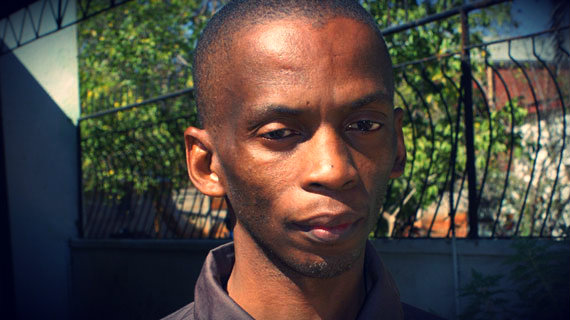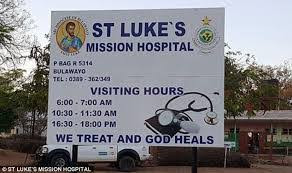
THE Bible records that after the spirit of the Lord took Ezekiel to the valley of dry bones where there lay a multitude of human bones, the Lord asked him whether those bones could live.
Ezekiel must have been filled with disbelief and incredulity when looking at the hopelessness of the situation. To all intents and purposes, if one was to be asked whether the Zimbabwean economy could flourish again, one would be reminded of the Ezekiel experience. Spiritual reality is that which does necessarily conform to the facts on the ground or the immediate physical reality of the day.
In terms of Zimbabwe, the physical reality is the fact that the economy has shrunk by over 70% and currently could be somewhere in the Federation period, possibly 1950 to 1956.
Unemployment has become a form of employment for thousands of Zimbabweans and the State is on the brink of bankruptcy hence its desire to tax even churches and squeeze revenue even from the informal sector.
Spiritual reality takes note of physical reality, but evokes spiritual principles to trigger faith and hope which are two things in short supply in the country.
The Zanu PF election victory and critically the election manifesto premised on empowerment and job creation has failed dismally. The ZimAsset economic programme will require over $27 billion in the next five years and the country is already crippled by a debilitating domestic debt and an insurmountable foreign debt. To his credit the Finance minister has admitted that the economy is in a mess and the country is a high risk area in as far as investment and extension of credit lines is concerned.
The physical, social and economic reality in Zimbabwe is that the economy will implode unless something drastic happens in the next five years to boost the investor profile of the country. However, as a country given to religion and specifically Christianity, I am one of those who believe that all things are possible even with this economyaa which is literally on its knees.
What are the dry bones? The dry bones or the impossibilities which the country faces include, but are not limited to the following: lAttracting foreign direct investment which the country needs badly so that it has the productive capacity to compete with other countries. Investors are averse to Zimbabwe due to consistent policy inconsistency epitomised by policy flip-flopping and disregard for property rights.
- Chamisa under fire over US$120K donation
- Mavhunga puts DeMbare into Chibuku quarterfinals
- Pension funds bet on Cabora Bassa oilfields
- Councils defy govt fire tender directive
Keep Reading
It must be remembered that investors are not later day Father Christmases who dole out investment to anyone anywhere, but rather they take special interest in issues pertaining to the security of their investment. In the absence of overt war, Zimbabwe still has a chance of rebranding and pushing herself as an investment destination of choice.
l Failure to invest in capital-intensive infrastructural development projects such as the road and rail system, water and energy development.
There is a window of opportunity with the solar plant in Gwanda, the methane gas project in Lupane and the Zambezi Water Project. These projects have the potential of triggering downstream and upstream industries and thus generate new economic opportunities and create jobs.
The Zimbabwean economy, like the bones in the valley, can live, but it will take political will, policy consistency, respect for the Constitution and fundamental rights of citizens. These bones can live if we can deal with issues of official corruption, inequality and lack of visionary leadership.
The tourism sector has vast potential to unlock economic growth and to generate employment.
This requires the country to generate a positive image internationally because we need to remember that the world does not revolve around us and every country is competing for economic space and jostling to occupy economic spaces whether in the form of investment or access to THE Bible records that after the spirit of the Lord took Ezekiel to the valley of dry bones where there lay a multitude of human bones, the Lord asked him whether those bones could live.
Ezekiel must have been filled with disbelief and incredulity when looking at the hopelessness of the situation. To all intents and purposes, if one was to be asked whether the Zimbabwean economy could flourish again, one would be reminded of the Ezekiel experience.
Spiritual reality is that which does necessarily conform to the facts on the ground or the immediate physical reality of the day.
In terms of Zimbabwe, the physical reality is the fact that the economy has shrunk by over 70% and currently could be somewhere in the Federation period, possibly 1950 to 1956.
Unemployment has become a form of employment for thousands of Zimbabweans and the State is on the brink of bankruptcy hence its desire to tax even churches and squeeze revenue even from the informal sector.
Spiritual reality takes note of physical reality, but evokes spiritual principles to trigger faith and hope which are two things in short supply in the country. The Zanu PF election victory and critically the election manifesto premised on empowerment and job creation has failed dismally.
The ZimAsset economic programme will require over $27 billion in the next five years and the country is already crippled by a debilitating domestic debt and an insurmountable foreign debt. To his credit the Finance minister has admitted that the economy is in a mess and the country is a high risk area in as far as investment and extension of credit lines is concerned.
The physical, social and economic reality in Zimbabwe is that the economy will implode unless something drastic happens in the next five years to boost the investor profile of the country. However, as a country given to religion and specifically Christianity, I am one of those who believe that all things are possible even with this economyaa which is literally on its knees.
What are the dry bones? The dry bones or the impossibilities which the country faces include, but are not limited to the following:
- Attracting foreign direct investment which the country needs badly so that it has the productive capacity to compete with other countries. Investors are averse to Zimbabwe due to consistent policy inconsistency epitomised by policy flip-flopping and disregard for property rights .
It must be remembered that investors are not later day Father Christmases who dole out investment to anyone anywhere, but rather they take special interest in issues pertaining to the security of their investment. In the absence of overt war, Zimbabwe still has a chance of rebranding and pushing herself as an investment destination of choice.
- Failure to invest in capital-intensive infrastructural development projects such as the road and rail system, water and energy development.
There is a window of opportunity with the solar plant in Gwanda, the methane gas project in Lupane and the Zambezi Water Project.
These projects have the potential of triggering downstream and upstream industries and thus generate new economic opportunities and create jobs.
The Zimbabwean economy, like the bones in the valley, can live, but it will take political will, policy consistency, respect for the Constitution and fundamental rights of citizens. These bones can live if we can deal with issues of official corruption, inequality and lack of visionary leadership.
The tourism sector has vast potential to unlock economic growth and to generate employment.
This requires the country to generate a positive image internationally because we need to remember that the world does not revolve around us and every country is competing for economic space and jostling to occupy economic spaces whether in the form of investment or access to lines of credit.
Nostalgic nationalism is important, but it will not bring bread on the table.
Shockingly, Zimbabwe has one of the biggest museums in Africa — namely the Natural History Museam in Bulawayo, but alas we have trampled on pearls like ungrateful pigs. We need to realise our potential and if we do, indeed “these bones shall live”.
WhatsApp number 0779 617 926 for feedback Dumisani Nkomo is an activist, social entrepreneur and chief executive officer of Habakkuk Trust. He writes here in his personal capacity.ines of credit.










